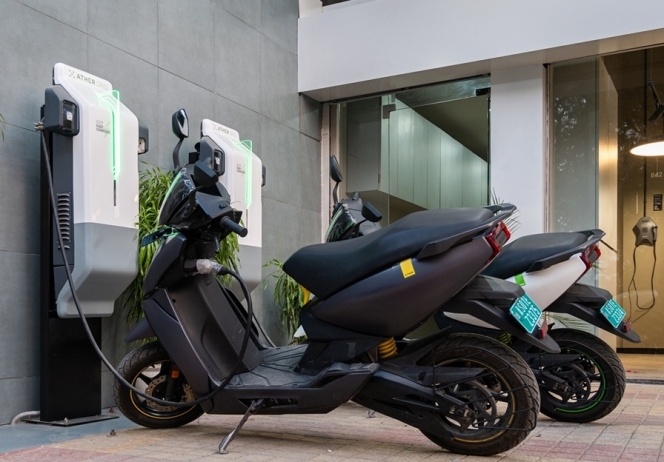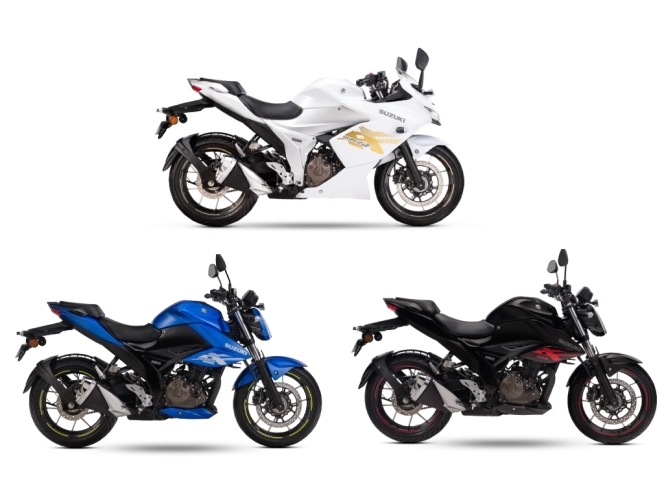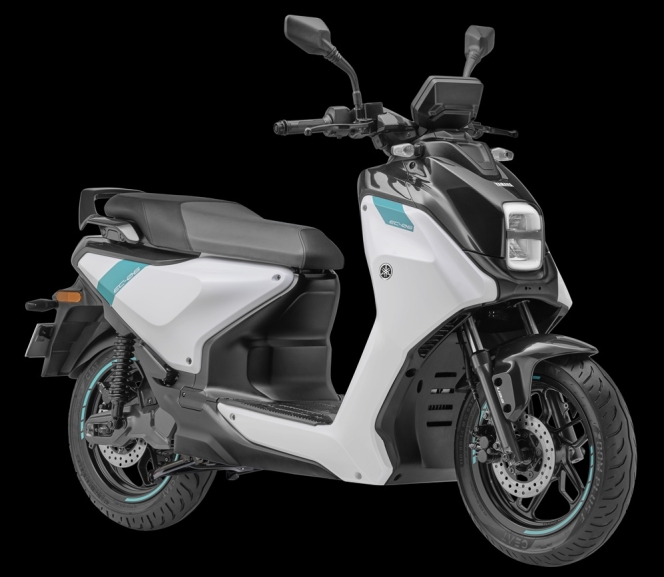Kabira Mobility To Focus Mass Production for KM 3000, KM 4000
- By Sharad Matade
- April 11, 2021

Kabira Mobility launched two hi-speed electric bikes – KM3000 and KM4000- targeting the young generation. The company now plans to go on mass production with a new plant being set up in Dharwad with an investment of INR 300 crore. “After the launch of two new hi-speed bikes, we will focus on mass production to meet demand. The plant will have a capacity to make 75,000 units per month and be fully functional by March this year,” said Jaibir Singh Siwach, CEO, Kabira Mobility.
Siwach claims the new Dharwad plant will be India’s largest EV plant, spread over 200,000 sq ft and generate 4000 direct and around 10000 indirect employment. Currently, the company has two plants, one in Goa and another in Dharwad, which have a production capacity of 10,000 units and 8,000 units, respectively.
Kabira Mobility is bringing its products in the market, which is being flooded with new products by established players and start-ups. However, the company has chosen its target customers- office goer and student segments.
“Around 80 percent of college students and office employees have less than 50 km run every day, and our new bikes give a range of more than 100 km per charge. Our targeted customers can charge their bikes at corporate parking premises and home. So, the range and charging will not be an issue. Being India’s fastest electric bikes, these bikes will thrill the young generation, who love speed and performance,” he said.
The KM 3000 is a fully faired sports-tourer with a top speed of 100 km/hr and has a riding range of 120 km on a single charge, claimed the company. The KM 4000, a street bike with naked design elements, is the fastest electric bike in the Indian market, with a top speed of 120 km/hr and a riding range of 160 km on a single charge. The bike supports Type 02 Universal Charger, which comes with an anti-removable lock and allows the rider to charge anywhere. Both bikes’ digital dashboard comes with 450 nits of brightness and Bluetooth connectivity, which shows ride statistics.
The company has also provided the keyless start feature available on KM Connect. Built for Indian Roads with IP67 Water Resistance which allows KM 3000 and KM 4000 to run in all weather and terrains. The bikes’ motor also comes with a dual sensor and temperature sensor for improved durability.
The company said deliveries of these bikes would start from May-2021. The company will launch its next products in July.
Speaking on the launch, Siwach said, “These bikes are a living testament to technological superiority and styling. We plan to extend our electric bike range by introducing more products to our portfolio. We believe that today’s young and mobile Indian has a strong appetite for powerful bikes simultaneously without causing any damage to the environment, and so, we see significant potential for these bikes in India. We aim to create a strong network that will provide our customers with a world-class experience and encourage the electric super biking segment in India.”
Additionally, through the KM mobile application, an owner can view charge cycles, battery temperature, battery score, and battery capacity used.
There are two modes of charging: Eco mode and Boost mode. The KM300 is more suited for overnight charging requiring 6 hours for a full charge; the latter takes two hours to charge fully.
The heart of the matter- the 4.4 kW battery- comes with a three-year warranty and is also fireproof.
Siwach said the bikes come with a battery life of 2,000 cycles and with a five-year warranty. “We also give the first three-year free replacement warranty,” he said.
The CEO also claims over 90 percent content of the bikes is localised. “All parts, including controllers and motors, except battery cells, are procured locally even battery packs are sourced from a local partner,” he said. The company also has in-house capabilities for building battery packs. It has partnered with Delta, Gabriel, Napino and Ceat for the local spare parts supply.
Talking on precaution on battery safety, Siwach said, “Battery explosions are no more challenge for EV makers. Battery safety largely depends on battery chemistry, components and BMS. If you use cheap components, then you compromise battery safety. We maintain the highest standard in battery safety.”
Both new bikes, powered by a DeltaEV BLDC Motor, are equipped with a digital instrument cluster featuring Bluetooth connectivity, optional riding modes, and a motor power indicator. Similarly, both motorcycles reach 0-40 km/hr in under three seconds and share the same DeltaEV Smart FOC Controller to regulate speed.
The riding modes include Eco, City, and Sports. The Anti-Theft is a practical feature that locks up the wheel on any unauthorised movement.
The recently-launched motorcycles are part of Kabira’s Phase-1 plan to commence operations in Delhi, Mumbai, Bangalore, Pune, and Hyderabad. Phase-2 will include 50 major cities in India and is expected to kick-off in August 2021.
Kabira Mobility got into the EV business in 2017 with six engineers with an aim to redefine India’s personal mobility industry. In 2019, it developed six different prototype models targeting school and college students, office goers and the delivery segment. The company unveiled five electric scooters- Kollegio, Kollegio Neo, Kollegio Plus, Intercity and Intercity Neo and one electric motorcycle-KM 3000 at the Auto Expo 2020.
“We unveiled the models in Auto Expo 2020 and launched them in June 2020. We received an encouraging response,” said Siwach. The Kollegio series, come with a swappable battery option, is designed for colleague students. The Intercity series come with cutting edge technology and functionality for daily city travellers and rental services.
During the development years of KM3000 and KM4000, the company engineers travel around the world and collected suitable inputs to develop the bikes in the local context.
As of now Kabira Mobility has more than 22 dealers and targets to get 50 dealers onboard pan India soon. At the initial stage, the company will set up dealers in Maharashtra, Gujarat, Karnataka, Tamil Nadu, Telangana and Goa. “In these states, we will expand the dealer network deeply. However, for the rest states, we will focus on metro cities,” he said.
The company is looking for dealers passionate about electric vehicles with auto industry experience. “ We are also providing training to dealers on service of our products.” Kabira Mobility will provide on-call services in the major cities.
On spare parts side, Siwach does not find any challenge. “As the bike is made in India with over 90 percent local content, the company does not see any challenge in supplying spare parts,” Siwach added. (MT)
Carolwood LP Completes Acquisition Of Indian Motorcycle Company From Polaris, Mike Kenney Takes Over As CEO
- By MT Bureau
- February 03, 2026

Carolwood LP has officially closed its agreement with Polaris to acquire the iconic Indian Motorcycle Company, which will now become an independent business.
The transition coincides with the 125th anniversary of the company, which also sees Mike Kennedy, a veteran of the motorcycle industry, take over as the Chief Executive Officer of the stand-alone entity.
The acquisition agreement includes the transition of approximately 900 employees to the new Indian Motorcycle Company. Manufacturing operations will remain at existing facilities in Spirit Lake, Iowa and Monticello, Minnesota.
Industrial design, technology and product development will continue at research and development centres in Burgdorf, Switzerland and Wyoming, Minnesota. Sales, service, and support for the dealer network and customers are expected to continue without interruption.
The company’s strategy involves concentrated investment in motorcycles, technologies, and craftsmanship. The executive emphasised a commitment to the brand's American manufacturing identity and its dealer partnerships.
Mike Kennedy, said, “It’s an incredible honour to take the helm of Indian Motorcycle as it celebrates its 125th Anniversary, empowered by a sense of gratitude and opportunity, and the support and ambition of a well-resourced, highly motivated ownership team. 2026 will be a special year to honour our history, but more importantly, to drive the brand into the future with a renewed level of commitment, focus and clarity that can only be found as a stand-alone company.”
The new leadership intends to focus on transparency and collaboration with its global dealer network, incorporating feedback into operations, marketing, and product development.
“We will achieve our vision through a deeper level of differentiation, leaning in on what makes our brand unique, and with products that possess a style, craftsmanship and performance quality that is uniquely justified by our historic legacy and spirit of innovation. Dealers are our most important partners, and we will judge our business based on the success of our dealers. We intend to be extremely collaborative with our dealers, actively listening to their feedback and incorporating it into our planning and decision-making, not only in terms of dealer operations, but also product development and marketing. America’s first motorcycle company will put America first. Our brand and business will be grounded in our American identity and more importantly, American manufacturing. ‘Built in America’ is not a slogan. It’s a competitive advantage, and we intend to use it,” added Kennedy.
Ather Energy Reports INR 9.95 Billion Revenue For Q3 FY2026
- By MT Bureau
- February 02, 2026

Bengaluru-based electric vehicle maker Ather Energy has posted its highest quarterly revenue to date, reaching INR 9.95 billion for Q3 FY2026, which marks a 53 percent YoY growth.
The company attributed the performance to sales volume growth as well as a rise in non-vehicle revenue. During the period, the company sold 67,851 units, a 50 percent increase YoY. Consequently, Ather’s national market share has expanded to 18.8 percent.
Ather Energy reported a narrowing of its EBITDA loss to INR 299 million, with the EBITDA margin improving by 1,600 basis points to (-3 percent). This progress is attributed to cost management and operating leverage.
Key Financial Data:
- Adjusted Gross Margin (AGM): INR 2.51 billion, up 111 percent YoY.
- AGM (Excluding Incentives): 23 percent, an increase of 1,100 bps YoY.
- Non-Vehicle Revenue: Contributed 14 percent to total income, led by software subscriptions, charging and services.
- Quarterly Loss Reduction: Narrowed by 45 percent compared to Q2 FY2026.
Tarun Mehta, Executive Director & CEO, Ather Energy, said, “Q3 has been a strong quarter for us. Robust festive demand, healthy volume growth, and improving market share together drove our best quarterly revenue and EBITDA so far. Over the past few quarters, we have stayed very focused on getting the fundamentals right by improving unit economics, margins, and operating leverage, and that effort is now clearly showing in the improvement in EBITDA. What is particularly encouraging is the strength of our ecosystem. AtherStack attach rates remain very high, and customer engagement is deepening even as our sales scale. All of this gives us confidence that the business is structurally prepared for sustainable, long-term growth.”
Suzuki Motorcycle India Reports 125,786 Unit Sales In January 2026
- By MT Bureau
- February 02, 2026

Suzuki Motorcycle India (SMIPL), the two-wheeler subsidiary of Suzuki Motor Corporation, Japan has reported wholesales of 125,786 units in January 2026, which marks a 15 percent YoY growth.
In the domestic market, the sales increased by 14 percent to 100,296 units, as against 87,834 units last year, while exports came at 25,490 units, up 21 percent YoY.
Deepak Mutreja, Vice-President – Sales & Marketing, Suzuki Motorcycle India, said, “The sales results for January indicate growing demand in both domestic and international markets. This momentum is supported by our ongoing focus on continuous customer engagement, after‑sales service enhancement, and network expansion. We will continue to invest in these areas to ensure that customers receive a seamless and reliable ownership experience throughout the year.”
Furthermore, the company reported INR 895.6 million revenue through spare parts sales, marking a 20 percent YoY growth.
Yamaha EC-06 E-Scooter Launched At INR 167,600
- By MT Bureau
- February 02, 2026

India Yamaha Motor (IYM), a leading two-wheeler manufacturer, has announced the price of its first electric scooter – the EC-06 – at INR 167,600 (ex-showroom Delhi). The e-scooter based on the River Indie will initially be sold in select cities through the company's Blue Square showrooms in a Bluish White colour.
The EC-06 features a 4kWh fixed battery paired with an Interior Permanent Magnet Synchronous Motor (IPMSM). It offers a certified claimed range of 169km on a single charge. It has a claimed top speed of 79 kmph, 6.7 kW of peak power, 26 Nm of torque and can be charged in 8 hours using a standard plug. It comes with 3 years or 30,000 km warranty for the battery.
The vehicle is built with IP67-certified protection for the motor and battery, while other electronics carry an IP65 rating for water and dust resistance.
The scooter includes three riding modes – Eco, Standard and Power – alongside a Reverse Mode. The chassis uses telescopic front forks with hydraulic dampers and a rear coil spring suspension. Braking is handled by 200mm discs at both ends, supported by a Combi Brake System (CBS).
For storage and technology, the EC-06 provides 24.5 litres of under-seat space and a colour LCD display. It integrates with the ‘Yamaha Motor Connect R’ app for real-time data access.
Hajime Aota, Chairman, Yamaha Motor India Group, said, “The EC-06 marks an important step in Yamaha’s journey toward sustainable urban mobility. As India accelerates its transition toward a carbon-neutral future under the government’s visionary leadership, Yamaha is proud to support this national agenda through high-quality electric innovation. Designed for everyday commuting, it balances efficiency with performance, offering an impressive range and intuitive features. As a first-of-its-kind model from Yamaha, it demonstrates how sustainability and riding excitement can coexist – true to our brand philosophy and our responsibility towards the future of India’s green economy.”







Comments (0)
ADD COMMENT